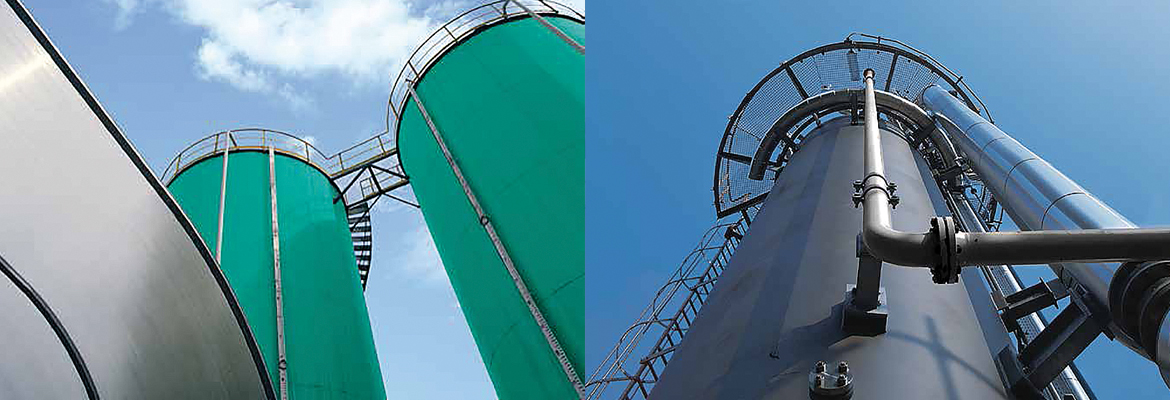Itelyum, an industrial hub officially created at the beginning of 2019 by Stirling Square’s private equity fund, is the result of an integration of 16 companies around two Viscolube hubs – a company born in Lodi, in the Italian region of Lombardy, ranking first in Europe for lubricant recovery – and Bitolea, a Pavia-based company ranking first in Europe in used solvent purification. To build this industrial recycling hub, Stirling Square – the majority shareholder – obtained €140 million worth of acquisitions, alongside an investment plan in plants worth 50 million.
Aggregation has led to a cutting-edge entity at an international level, while offering its partners integrated and sustainable processes, products and services, according to a circular economy model extending product lifecycles whilst creating partnerships in the three market segments served, i.e. used lubricant regeneration (Regeneration Solutions, an area including former Viscolube operations); solvent production from chemical waste (Purification Solutions, former Bitolea); and lastly special waste collection (Soluzioni per l’ambiente expanding Viscoambiente’s operations, a Viscolube department, while coordinating several companies in Northern Italy).
Itelyum’s foundation in sustainability is demonstrated clearly in the 2018 financial report data which, as stated by Stefano Gardi – the company’s Chief Sustainability Officer – is in line with the Global Reporting Initiative’s most recent standards, the international benchmark for integrated reporting. Furthermore, adds Gardi, the document “contains the Communication on Progress which includes the group’s initiatives supporting Global Compact and the 17 Sustainable Development Goals (SDGs) ratified by the UN in 2015.” All material aspects of business management have been analysed according to the direct and indirect contributions they may have to achieve such goals. Global Compact, joined by Itelyum, is the sustainability strategic plan born in 2000, currently involving non-governmental organisations, public bodies, UN agencies and over 10,000 companies around the world.
The report integrates both the group’s priorities and external expectations, “including, not only financial and dimensional data, but also a selection of non-financial indicators, such as: equal opportunities as a social inclusion indicator; safety in the workplace as an indicator of managerial skills; carbon emissions as an integrated indicator of industrial efficiency; and circularity as leverage for market differentiation.”
Let’s start with the numbers. In 2018, the group treated over 700,000 tonnes of waste. The Pieve Fissiraga and Ceccano’s regeneration plants processed 171,000 tonnes of used lubricants, obtaining 111,000 tonnes of new base oils, almost 24,000 of bitumen and 13,000 of diesel along with 14,500 of treated water. In the solvent purification plants, instead, 90,000 tonnes of chemical waste and 38,000 tonnes of raw materials have been transformed into 109,000 tonnes of new products, 70% of which solvents and recycled materials. In both cases, lifecycle circularity is over 95%.
“Just over the last three years,” points out Marco Codognola, Itelyum’s CEO, “we have more than double the quantity of industrial waste we manage. Not only used oils and solvents that are valorised and transformed into new products, but also 450,000 tonnes collected, stocked and pre-treated by professional platforms and then sent to sustainable uses.” Nearly 80% of the latter have been sent to valorisation operations or reintroduced into the environment as treated water.
All these activities, the report reads, have produced a carbon footprint of just under 200,000 tonnes of CO2, at the same time avoiding the emission into the atmosphere of 700,000 tonnes of CO2 and averting enormous use of soil, water and resources caused by the primary production of base oils and solvents.
As for economic data, in 2018, aggregated revenues of the companies which created Itelyum amounted to € 288.5 million, an increase compared to the previous year’s 230, as well as the number of employees, from 409 to 518; 82% of the turnover (235,6 million) is defined as circular, meaning that it is derived from “the sale of recycled products, from responsible waste management and the capacity of providing products from virgin streams to customers who, in the value chain, then become providers of waste to be recycled by the group’s plants.” Investments amount to 12 million, half of which in health, safety and the environment, and 16% in R&D.
Another interesting social and environmental figure emerges from the report: that of “shared value” which in 2018 amounted to €73 million. This figure was calculated estimating “the monetary value of financial, socio-economic and environmental externalities” created by the company. In particular, it combines the value passed to stakeholders through paid employment, taxes paid to the State and its bodies, interest paid to banks, environmental aspects which form the balance between the group’s footprint and avoided impacts along the value chain in terms of CO2 emissions and other substances, water consumption, soil use and employment of non-renewable resources.
Thanks to this operation, it is possible to draw up an Integrated Profit & Loss Statement (IP&L), an index that does not aim to correct the value of traditional P&L with identified social and environmental variables, but at better understanding the sector’s dynamics and its success leverage with evaluation and measuring tools useful in supporting with increased awareness internal decision processes.
“Itelyum’s commitment,” concludes Company Director Antonio Lazzarinetti, “is to turn reporting not only into an accounting tool, but above all into strategic support to improve the group’s industrial competitiveness.” As a matter of fact, “material evidence,” the document reads, “shows how a sustainable approach, besides creating shared value for society and the environment, can also provide success leverage for improving profit margins, mitigating business risk, attracting capital and investors, fully motivating employees, and brand consolidation.”
Itelyum, http://itelyum.com
Global Compact, www.unglobalcompact.org


